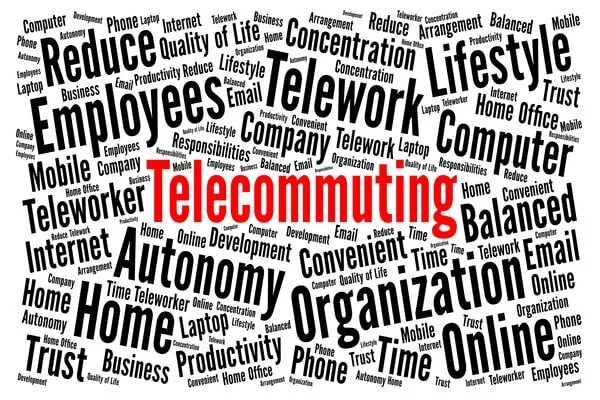Telecommuting seems to be the wave of the future. Currently, over a third of all employees have telecommuted at some point, and millions of employees nationwide telecommute on a regular basis. Prevailing trends suggest that this figure will rise dramatically in the coming years. Telecommuting offers both advantages and disadvantages, and the legal implications are significant.
The Benefits of Allowing Telecommuting
Allowing telecommuting makes more sense for some businesses than others. If you haven’t made the decision yet, consider the following advantages and balance them against the legal risks.
Business can continue even during inclement weather: If your office is located in an area that is frequently snowed under during the winter (Buffalo, New York for example) or is subject to extremely low temperatures, it might be better to spare your employees the commute.
Less time off: Instead of taking four days off to visit relatives in another state, for example, your employee could work remotely during the day while his relatives are at the office anyway.
Nationwide or even worldwide recruiting reach: Your business will no longer be restricted to local employees.
Morale: Your employees are likely to be happier if you allow telecommuting as an option (but not necessarily if you require telecommuting).
Legal Issues
Telecommuting invokes some important legal issues that you should not ignore:
Conflict of laws: If your employees are located in different jurisdictions, you may have to deal with many different sets of employment laws that may be inconsistent with each other. California employment law, in particular, diverges from the employment laws of other states.
There is an increased risk of disclosure of confidential company information: Non-disclosure agreements are a must, as is some form of computer security. Security needs may impose additional costs on your business.
You will need a reliable way of tracking working hours so that you will know when you incur overtime liability.
Allowing telecommuting could be required in the case of certain disabled employees subject to the “reasonable accommodation” requirement of the Americans With Disability Act.
Personal injury liability: California courts consider the home and other places, such as a coffee shop, to be an extension of the workplace if it is used as such. If an employee is injured outside the office during working hours, you might incur workers’ compensation liability. It could be difficult to ensure workplace safety if you don’t even know the location of the employee’s ‘workplace’.
It is best to formulate clear policies regarding the foregoing legal risks and to place a description of these policies in the employee handbook. You are likely to require legal assistance to effectively draft this material.
Contact CKB Vienna Today
The workplace is changing, and the law is changing right along with it. If you are an employer wondering how to comply with California law concerning telecommuting, call CKB Vienna today or contact us online to schedule a consultation, where we can discuss your concerns and answer your questions. We serve clients in Rancho Cucamonga, San Bernardino County, Los Angeles County, Orange County, and Riverside County.

